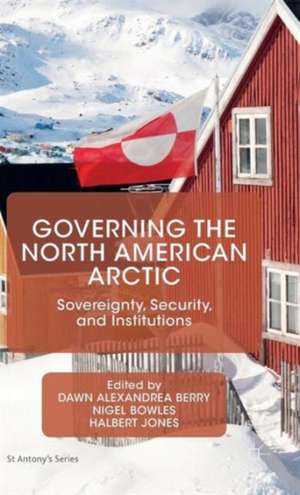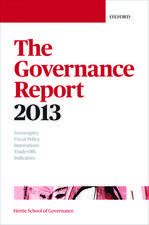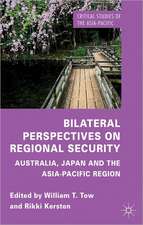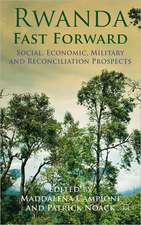Governing the North American Arctic: Sovereignty, Security, and Institutions: St Antony's Series
Editat de Dawn Alexandrea Berry, Nigel Bowles, Halbert Jonesen Limba Engleză Hardback – 29 feb 2016
Din seria St Antony's Series
- 18%
 Preț: 895.27 lei
Preț: 895.27 lei - 18%
 Preț: 891.33 lei
Preț: 891.33 lei -
 Preț: 304.38 lei
Preț: 304.38 lei - 15%
 Preț: 647.27 lei
Preț: 647.27 lei - 15%
 Preț: 519.88 lei
Preț: 519.88 lei - 9%
 Preț: 900.53 lei
Preț: 900.53 lei - 20%
 Preț: 939.87 lei
Preț: 939.87 lei - 18%
 Preț: 687.07 lei
Preț: 687.07 lei -
 Preț: 263.29 lei
Preț: 263.29 lei -
 Preț: 391.22 lei
Preț: 391.22 lei - 15%
 Preț: 644.18 lei
Preț: 644.18 lei -
 Preț: 338.31 lei
Preț: 338.31 lei - 15%
 Preț: 646.62 lei
Preț: 646.62 lei - 15%
 Preț: 640.37 lei
Preț: 640.37 lei - 15%
 Preț: 639.04 lei
Preț: 639.04 lei - 15%
 Preț: 643.48 lei
Preț: 643.48 lei - 15%
 Preț: 643.34 lei
Preț: 643.34 lei - 15%
 Preț: 640.55 lei
Preț: 640.55 lei -
 Preț: 389.11 lei
Preț: 389.11 lei - 15%
 Preț: 641.20 lei
Preț: 641.20 lei - 15%
 Preț: 639.08 lei
Preț: 639.08 lei - 15%
 Preț: 640.71 lei
Preț: 640.71 lei - 18%
 Preț: 1384.88 lei
Preț: 1384.88 lei - 15%
 Preț: 641.85 lei
Preț: 641.85 lei - 15%
 Preț: 642.83 lei
Preț: 642.83 lei - 15%
 Preț: 643.99 lei
Preț: 643.99 lei - 15%
 Preț: 647.27 lei
Preț: 647.27 lei -
 Preț: 390.08 lei
Preț: 390.08 lei - 18%
 Preț: 783.50 lei
Preț: 783.50 lei - 15%
 Preț: 641.03 lei
Preț: 641.03 lei - 18%
 Preț: 943.88 lei
Preț: 943.88 lei - 15%
 Preț: 641.85 lei
Preț: 641.85 lei - 15%
 Preț: 641.38 lei
Preț: 641.38 lei -
 Preț: 385.47 lei
Preț: 385.47 lei -
 Preț: 338.31 lei
Preț: 338.31 lei -
 Preț: 389.31 lei
Preț: 389.31 lei - 15%
 Preț: 641.03 lei
Preț: 641.03 lei - 18%
 Preț: 727.00 lei
Preț: 727.00 lei - 15%
 Preț: 640.88 lei
Preț: 640.88 lei -
 Preț: 448.82 lei
Preț: 448.82 lei - 18%
 Preț: 946.24 lei
Preț: 946.24 lei - 15%
 Preț: 641.53 lei
Preț: 641.53 lei - 15%
 Preț: 642.51 lei
Preț: 642.51 lei -
 Preț: 389.88 lei
Preț: 389.88 lei - 15%
 Preț: 643.00 lei
Preț: 643.00 lei - 15%
 Preț: 639.25 lei
Preț: 639.25 lei - 18%
 Preț: 948.61 lei
Preț: 948.61 lei
Preț: 728.91 lei
Preț vechi: 888.91 lei
-18% Nou
Puncte Express: 1093
Preț estimativ în valută:
139.48€ • 149.15$ • 116.29£
139.48€ • 149.15$ • 116.29£
Carte tipărită la comandă
Livrare economică 17 aprilie-01 mai
Preluare comenzi: 021 569.72.76
Specificații
ISBN-13: 9781137493903
ISBN-10: 1137493909
Pagini: 277
Ilustrații: XI, 277 p.
Dimensiuni: 140 x 216 x 18 mm
Greutate: 0.48 kg
Ediția:1st ed. 2016
Editura: Palgrave Macmillan UK
Colecția Palgrave Macmillan
Seria St Antony's Series
Locul publicării:London, United Kingdom
ISBN-10: 1137493909
Pagini: 277
Ilustrații: XI, 277 p.
Dimensiuni: 140 x 216 x 18 mm
Greutate: 0.48 kg
Ediția:1st ed. 2016
Editura: Palgrave Macmillan UK
Colecția Palgrave Macmillan
Seria St Antony's Series
Locul publicării:London, United Kingdom
Cuprins
Introduction
The Arctic, North America, and the World: A Political Perspective; The Hon. William C. Graham
PART I: SOVEREIGNTY
1. Arctic Governance and the Relevance of History; Shelagh D. Grant
2. Canadian Arctic Shipping Regulations and the Law of the Sea; James Kraska
3. Chinese Mining Interests and the Arctic; Adam Lajeunesse and P. Whitney Lackenbauer
PART II: SECURITY
4. The Monroe Doctrine and the Governance of Greenland's Security; Dawn Alexandrea Berry
5. Strong Foothold or On Thin Ice? US Strategies for Development, Environmental Stewardship, and Security in the Arctic; Mihaela David
6. Premier Partners: Canada, the United States and Arctic Security; Rob Huebert and P. Whitney Lackenbauer
PART III: INSTITUTION
7. The Challenges of American Federalism in a Rapidly Changing Arctic; Chanda L. Meek and Emily Russell
8. Constitutional Development and Natural Resources in the North; Alastair Campbell and Kirk Cameron
9. Institutions, Resources, and the Governance of Postcolonial Greenland; Richard C. Powell
10. The Emergence of an Arctic Council; John English
PART IV: OFFICIAL PERSPECTIVES
11. United States Perspectives on the Arctic; Evan T. Bloom
12. Canadian Arctic Sovereignty: Myths and Realities; Alan H. Kessel
13. Greenland Self-Government and the Arctic; Mininnguaq Kleist
Conclusion
14. Inuit Peoples and the Governance of the North American Arctic; William L. Iggiagruk Hensley
The Arctic, North America, and the World: A Political Perspective; The Hon. William C. Graham
PART I: SOVEREIGNTY
1. Arctic Governance and the Relevance of History; Shelagh D. Grant
2. Canadian Arctic Shipping Regulations and the Law of the Sea; James Kraska
3. Chinese Mining Interests and the Arctic; Adam Lajeunesse and P. Whitney Lackenbauer
PART II: SECURITY
4. The Monroe Doctrine and the Governance of Greenland's Security; Dawn Alexandrea Berry
5. Strong Foothold or On Thin Ice? US Strategies for Development, Environmental Stewardship, and Security in the Arctic; Mihaela David
6. Premier Partners: Canada, the United States and Arctic Security; Rob Huebert and P. Whitney Lackenbauer
PART III: INSTITUTION
7. The Challenges of American Federalism in a Rapidly Changing Arctic; Chanda L. Meek and Emily Russell
8. Constitutional Development and Natural Resources in the North; Alastair Campbell and Kirk Cameron
9. Institutions, Resources, and the Governance of Postcolonial Greenland; Richard C. Powell
10. The Emergence of an Arctic Council; John English
PART IV: OFFICIAL PERSPECTIVES
11. United States Perspectives on the Arctic; Evan T. Bloom
12. Canadian Arctic Sovereignty: Myths and Realities; Alan H. Kessel
13. Greenland Self-Government and the Arctic; Mininnguaq Kleist
Conclusion
14. Inuit Peoples and the Governance of the North American Arctic; William L. Iggiagruk Hensley
Notă biografică
Dawn Alexandrea Berry is Postdoctoral Fellow in Foreign Policy, Security Studies, and Diplomatic History at the Mario Einaudi Center for International Studies, Cornell University, USA.
Nigel Bowles is Director of the Rothermere American Institute at the University of Oxford, UK.
Halbert Jones is Director of the North American Studies Programme at St Antony's College, University of Oxford, UK.
Nigel Bowles is Director of the Rothermere American Institute at the University of Oxford, UK.
Halbert Jones is Director of the North American Studies Programme at St Antony's College, University of Oxford, UK.
Textul de pe ultima copertă
Though it has been home for centuries to indigenous peoples who have mastered its conditions, the Arctic has historically proven to be a difficult region for governments to administer. Extreme temperatures, vast distances, and widely dispersed patterns of settlement have made it impossible for bureaucracies based in far-off capitals to erect and maintain the kind of infrastructure and institutions that they have built elsewhere. As climate change transforms the polar regions, this book seeks to explore how the challenges of governance are developing and being met in Alaska, the Canadian Far North, and Greenland, while also drawing upon lessons from the region's past. Though the experience of each of these jurisdictions is unique, their place within democratic, federal systems and the prominence within each of them of issues relating to the rights of indigenous peoples situates them as part of an identifiably 'North American Arctic.' Today, as this volume shows, their institutions are evolving to address contemporary issues of security, environmental protection, indigenous rights, and economic development.















